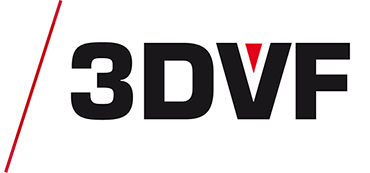This article is also available in:
French
With the rise of generative AI, numerous ethical and legal questions are being raised. While many companies are tempted to adopt these technologies, there are two major issues.
Firstly, the training data for these AIs often consists of vast amounts of artworks scraped from the internet without regard to copyright.
Secondly, the pictures generated by these AIs may themselves be too similar to the data used to train them, and infringe on their copyright.
Frames from popular movies generated using Midjourney : What will the studios do?
The latter is now confirmed for Midjourney users. Tests show that this tool can easily recreate pictures that are nearly identical to screencaps from Marvel films.
Gary Marcus and Reid Southen have published an article on their experiments on this matter. They demonstrate that basic prompts can generate images that are very similar to screencaps from various movies and games.
Judge for yourself: the illustration at the top of this article, as well as the pictures that follow, were created during these experiments.
This is an issue for any studio or individual that is using Midjourney, especially for commercial use. Generating and using such a picture could expose you to a lawsuit for copyright infringement.

Of course, it should be noted that these prompts explicitly mention movie titles. So, one might assume that an average user not mentioning any titles wouldn’t encounter such results and would incur no risk. However, the authors of the article show that the problem arises even with queries that don’t directly allude to the name of a franchise.

The problem also exists with DALL-E 3, another generative AI:

These experiments show that a very real problem exists, and The Hollywood Reporter, having sought opinions from American intellectual property lawyers, unsurprisingly explains that it is highly likely that entire movies (or at least promotional images, trailers) have been used to train Midjourney, probably without any authorization.
What’s worse: if these examples are well-known works, the problem also exists for training images and photos that the end user won’t recognize at first glance. Thus, the average Midjourney/Dall-E user is at risk of committing copyright infrigement even without realizing it.
Generative AIs & Copyright: What will the studio do?
Gary Marcus and Reid Southen emphasize in their article that for companies behind generative AI tools, creating a “patch” is very difficult: filtering keywords leaves room for fairly simple workarounds, and retraining an AI is very costly. Research efforts to make AIs “unlearn” specific elements do exist, but as of now, there’s no miracle solution. Especially for AIs that have evidently been trained on a large number of copyrighted pictures.
We strongly encourage you to read the Hollywood Reporter article for more information about the legal issues around this matter. The Hollywood Reporter, in particular, wonders why no significant lawsuit has occurred yet, and suggests a few hypotheses: studios may already be negotiating a licensing deal with AI companies.
Another possibility is that the studios are waiting and accumulating evidence before suing. The aforementioned article could then be exactly the kind of evidence that studios could use to support a lawsuit. It’s worth noting that a threat of a lawsuit can also be an efficient way to force AI companies to sign a licensing deal.
In other words, the strategy of big movie and videogame studios remains unclear. We will therefore have the opportunity to explore this topic further in the coming weeks and months.

